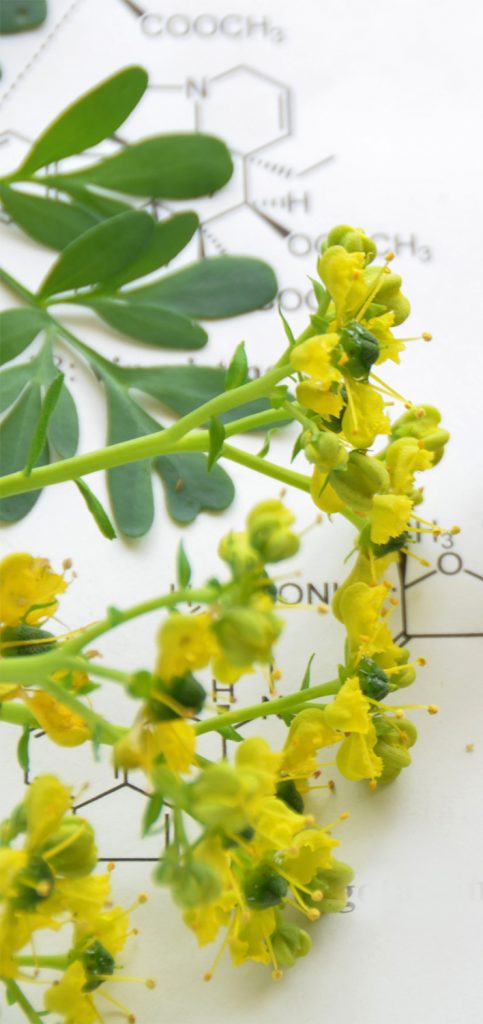Cannabis Terpenes
While the aroma of marijuana is unmistakable to the seasoned nose, it’s fairly difficult to describe in words exactly what it smells like. Some strains have a hint of sweetness to them, some vaguely recall the odour of a skunk, while others are downright fruity.
A quick overview of cannabis terpenes
Which part of the cannabis plant produces these varied and complex scents?
Comprised mainly of resin and turpentine, terpenes are organic compounds that are found in a variety of plants, butterflies and even termites.
However the ones we’re curious about are those terpenes found in cannabis. They originate in the same part of the cannabis plant as cannabinoids such as THC and CBD, and are responsible for generating that distinctive marijuana smell.
You can get a quick introduction to terpenes in the following YouTube video from Leafly:
It’s important to note that cannabis terpenes do much more than simply generate a funky scent.
Due to the way they interact with the endocannabinoid system and neurotransmitters in the brain, there’s a growing body of research that suggests terpenes could have significant potential in medical applications. By manipulating terpenes, scientists may be able to develop strains of medicinal cannabis that are more effective than what is currently available.
Terpenes & their Health Benefits – NZ CannabisInfographicHere are seven common terpenes that may prove to have a big impact on the medical marijuana industry in years to come:
1. Alpha-pinene
Otherwise known as essential pine oil, alpha-pinene is commonly found in cannabis and has broad medical benefits. It is known to be effective at widening the bronchi (the tract that allows airway into your lungs), which could be useful for those suffering from asthma and other respiratory disorders. In addition, alpha-pinene has also been proven to boost alertness and memory, which may help with a range of mental conditions.
2. Myrcene
Another terpene frequently found in marijuana, myrcene has a notable earthy aroma and is known for its relaxing, body-high effects. Thanks to these qualities, many of myrcene’s medical benefits are centred around relieving muscle tension, reducing pain and aiding with sleep problems. It’s also anti-carcinogenic and has antioxidant properties.
3. Limonene
This powerful terpene has a range of applications that has caught the attention of the medical world. In clinical studies, limonene has been used to alleviate heartburn, relieve gastrointestinal reflux and dissolve gallstones. Researchers have also demonstrated that limonene may be able to destroy breast-cancer cells as well as pathogenic bacteria.

4. Caryophyllene
Peppery in smell and potent in effect, caryophyllene-heavy strains of cannabis are known for increasing your heart rate. This might sound like a fairly negative side-effect, but this terpene is in fact effective at treating a variety of health conditions, including autoimmune disorders, arthritis, ulcers and a range of gastrointestinal problems.
5. Linalool
Commonly found in lavender as well as cannabis, perhaps it isn’t surprising that marijuana strains with a high concentration of linalool have a notably floral aroma. This terpene is valued for its anti-anxiety properties, and is also effective when used as an antidepressant, anticonvulsant and in the treatment of acne.
6. Eucalyptol
Featuring a distinctly spicy scent, eucalyptol is often used in cooking. However, it also has a lot of value in the medical marijuana world, and can be found in many over-the-counter cough suppressants and mouthwashes. Most types of cannabis contain very small amounts of eucalyptol, though it’s possible that purpose-bred strains could change this.
7. Borneol
Borneol has some impressively diverse medical applications. Not only can it be used to treat pain and sleeplessness, it also has antiseptic properties and, similar to alpha-pinene, is effective as a bronchodilator.
The Future of Terpenes
As our understanding of terpenes continues to expand, the medical marijuana industry is getting better at providing patients with access to cannabis strains that are best suited to their conditions. However, until New Zealand policymakers consider reforming the country’s medical marijuana laws, Kiwis are going to find it exceedingly difficult to purchase the most effective type of cannabis for their ailments.